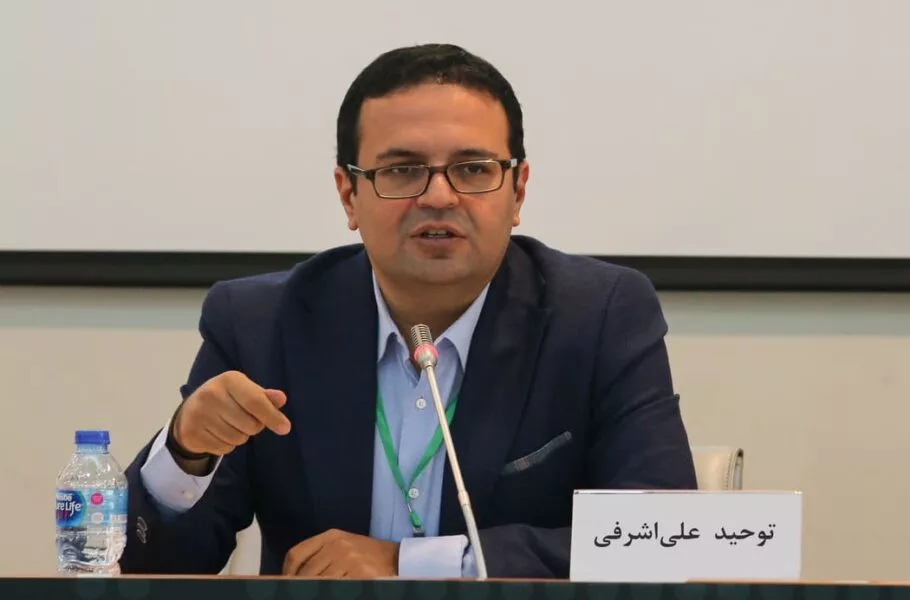
Alibaba CEO: Iran’s Tourism Crisis Deepened by War After Year-Long Decline
The CEO of Alibaba, Iran’s largest online travel platform, said the country’s tourism sector has faced a year-long downturn.
One of the consequences of the 12-day war has been a general weakening of the country's digital economy, and it seems the tourism industry has been hit harder than other sectors. This is why the first news of layoffs among the leading and largest names in the online business sphere came from Alibaba, the country's pioneer in online tourism. But why did the company resort to downsizing so quickly? What factors prevented Alibaba from withstanding the pressures of the war for a longer period? In a conversation with Tohid Ali-Ashrafi, CEO of Alibaba Travels, we discussed the issue of layoffs at the company and its underlying causes.
From a macro perspective, what effects has the recent war had on the country's tourism chain?
The recent 12-day war is the latest and largest piece in a domino effect of crises that have hit Iran's tourism industry over the past nine months. Since the beginning of autumn 1403 (roughly September 2024), following the Israeli regime's attacks, Iran's airspace was closed multiple times, the country was under threat of attack, and "True Promise 2" operation took place during this period. Many international airlines did not fly to Iran for months, and the few remaining companies drastically reduced their number of flights.
Last winter, the near-doubling of the foreign exchange rate and the decline in people's purchasing power severely impacted Nowruz (Iranian New Year) travel, which is the tourism industry's best-selling market of the year.
Finally, the 12-day war, whose security and economic consequences are still ongoing, dealt a fundamental blow to the body of the tourism industry.
Overall, it can be said that the crisis in the tourism industry began in Mehr 1403 (October 2024) and has dominoed into the recent war crisis, a 20-day suspension of flights, and the cancellation of tours, hotel reservations, and more.
Based on available data and analysis, what is your estimate of the depth and extent of the damage to the tourism industry compared to other industries?
You can see that even now, businesses that are lower on Maslow's hierarchy of needs for people than tourism are experiencing a sharp decline in demand, let alone tourism, which has a lower priority and necessity in people's spending baskets.
Experience from past crises has also shown that security issues or a decrease in purchasing power severely shrink the tourism industry, and its recovery is only possible in the long term, provided there is security and economic stability.
In short, the state of tourism is heavily dependent on the "good mood" of the people. The economic complexion of the country can be diagnosed from the state of its tourism industry.
The recent report from the Chamber of Commerce also indicates 9,600 billion tomans in damages to the aviation sector of the tourism industry alone, which is still ongoing. Even in the few days that the airspace has been declared open, we see that less than 30 percent of domestic flights have been operated, and there seems to be no hope for a full recovery in the short term, unless the country's economy and security face no new crises for a long time.
In the recent layoffs at Alibaba, how many employees were let go, and was this directly related to recent events, or had such a decision been made beforehand?
We had no prior plans to reduce our workforce and were pushing forward with all our strength in the semi-operational conditions we were in.
Unfortunately, at this stage of the series of crises I described, we were forced to say goodbye to about 30 percent of our best and most valuable colleagues. All the colleagues we parted with at this juncture were at the highest level of professional and interpersonal competence, and losing each one of these dear individuals is a great regret for us.
On social media, some users believe that the layoffs were an extreme reaction to a 12-day crisis. Was the damage from this crisis limited to this time frame, or did it have longer-term dimensions?
As I said, the crisis in the tourism industry started last Mehr (October 2024), weakening the economic body of this industry and making it vulnerable, and now it has become entangled with the current war.
It should also be noted that the tourism industry, due to its pre-selling nature, economically "welcomes" crises. This means that in addition to sales stopping during crises like COVID-19 and war, flights are also halted. The advance sales made months ago for travel dates falling within the crisis period are cancelled, and all the sales and revenue from them are lost.
For example, in the current crisis, we lost some of our sales for the second half of 1403 (late 2024/early 2025), especially the sale of international tickets, which generate much better revenue than domestic products. As one of hundreds of examples, we had a sale where a family of five bought round-trip tickets to Canada last Dey (December/January) for a trip this coming Tir (June/July). Due to the crisis, they cancelled their trip, and about one billion tomans of sales from Dey were lost for Alibaba.
Because of this pre-selling nature in the tourism industry, it can be said that with the onset of crises, while current sales stop, a high percentage of the sales from previous months for tourism companies are also wiped out. In fact, on the first day a crisis begins for other industries, the tourism sector is already economically facing its 30th day of crisis.
Did you consider alternative options before deciding on layoffs?
We began cost-saving measures in all areas. Since last Mehr (October 2024) and the beginning of the crisis, we drastically reduced our marketing expenses.
From the start of the 12-day war, we took steps to consolidate Alibaba's offices, reduce rental costs, and optimally manage consulting, business travel, transportation, equipment, and other expenses to run the company with the most efficient and lowest possible cost.
But as you know, in a company like Alibaba, human resources costs constitute about 70 percent of total expenses. In a crisis like the 12-day war, where about 80 percent of the company's revenue is lost, we inevitably had to make a minimum 30 percent cost reduction in human resources, especially in sectors where there is no longer demand or where market demand has suffered fundamental and long-term damage.
Have you considered any support programs for the laid-off employees or the possibility of their return in the future?
Our entire effort is to provide the greatest possible support, within our means, to the colleagues who have left Alibaba during this crisis. In this regard, Alibaba will certainly support them by paying one month, and in some cases up to two months, of extra salary, depending on the income level and needs of each separated colleague. Of course, if market demand returns and conditions show stable improvement, our first priority will be to rehire our former colleagues.
What is your assessment of the time and conditions necessary for the tourism industry to return to its pre-crisis level?
In my opinion, until confidence in personal and economic security returns to society, Iran's tourism will not return to its previous level.
Some business and essential travel might continue, but leisure and tourism trips, which are the core of this market, can only recover slowly if security and the economic power of households return. Just as in the COVID-19 crisis, where only public health was the issue, the tourism market situation gradually improved with a gentle slope a year after vaccinations began.












